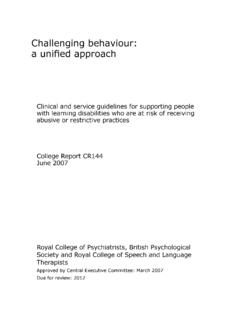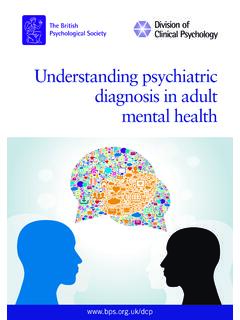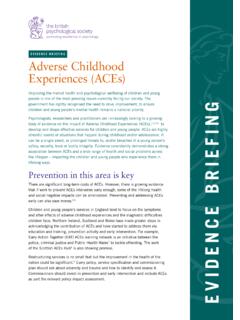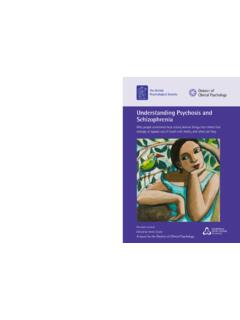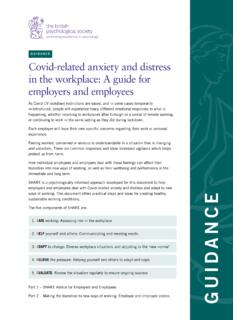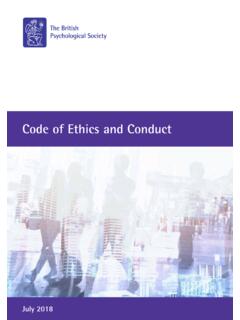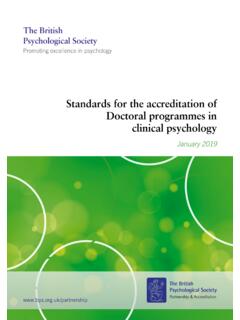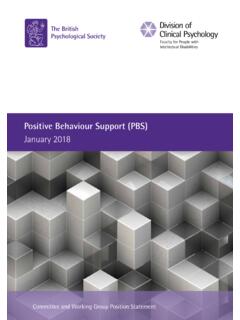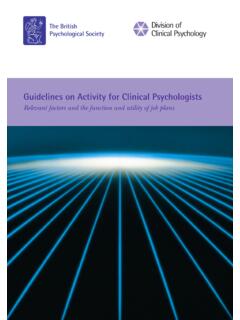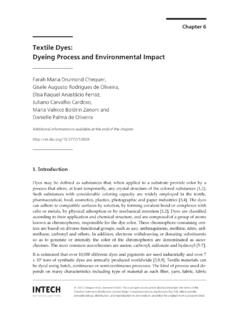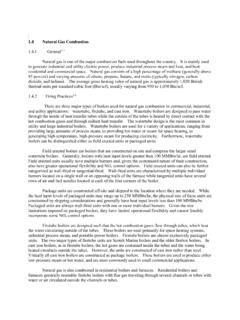Transcription of Code of Human Research Ethics - BPS
1 Code of Human Research EthicsPublished by The British Psychological Society, St Andrews House,48 Princess Road East, Leicester LE1 7DR. The British Psychological Society 2014 ISBN: 978-1-85433-762-7If you have problems reading this document andwould like it in a different format, please contact uswith your specific requirements. Tel: 0116 2254 9568; email of Human Research Ethics1 Contents1. of principles?62. The for the autonomy, privacy and dignity of 8individuals and benefit and minimising harm113. Risk134. Valid Consent155. Confidentiality226. Giving Advice237. Deception248. Debriefing269. Principles of Best Practice in Ethics principles27 Independence 27 Competence 27 Facilitation 28 Transparency and accountability role of a Research Ethics Committee constitution of a Research Ethics and development of Research Ethics Committee Ethics review3010.
2 Further Safeguards for working with vulnerable lacking capacity in a dependent or 32unequal Research within the National Health to decide if your Research requires33 NHS remit of NHS for Ethics online application process (IRAS) Independent practitioners3611. Student Research3712. Acknowledgements412 The British Psychological SocietyCode of Human Research Ethics31. BackgroundThe revised British Psychological Society Ethical Principles forConducting Research with Human Participants were published in was a widely used document; many institutions and researchfunding bodies have used it to inform their own Research ethicspolicies and practices. Since that time, additional supplementaryguidance documents have also been published to support membersconducting Research in numerous different contexts.
3 The Societyappreciates that the understandings of Ethics in Research areconstantly developing; in addition, other changes with significancefor Research Ethics , such as the advent of the statutory regulation ofprofessional psychological services by the Health and CareProfessions Council (HCPC), have taken place. The revisions of theSociety s own Code of Ethics and Conduct(2006, 2009) have alsoinfluenced thinking in this area. For these reasons, this Code ofHuman Research Ethicshas been produced. The Working Party, Ethics Committee and Research Board thank allthose people who were involved in its creation (see Acknowledgementsat the back of this document) and encourage individuals anddepartments to use it as a resource for their own thinking and thecontinued development of ethical behaviour in psychological John OatesConvenor, Working Party on the Code of Research EthicsDr Richard KwiatkowskiMember of the Ethics CommitteeDr Lisa Morrison CoulthardBPS Lead Policy Advisor4 The British Psychological IntroductionThis Code of Human Research Ethicssets out a set of general principlesthat are applicable to all Research contexts and are intended to coverall Research with Human participants.
4 Principles of conduct forpsychologists in professional practice and working with non-humananimals are to be found in the Society s Code of Ethics and Conductandother advisory documents prepared by the Society (such as theGuidelines for Psychologists Working with Animals). It may also be helpfulto consult the HCPC should respect the rights and dignity of participants intheir Research and the legitimate interests of stakeholders such asfunders, institutions, sponsors and society at are numerous reasons for behaving ethically. Participants inpsychological Research should have confidence in the psychological Research is only possible if there is mutualrespect and trust between investigators and investigators are potentially interested in all aspects ofhuman behaviour and experience.
5 However, for Ethics reasons, someareas of Human experience and behaviour may be beyond the reachof experiment, observation or other form of psychologicalintervention. Ethics guidelines are necessary to clarify the conditionsunder which psychological Research can take place. However, asstated in the Code of Ethics and Conduct, ..no Code can replace theneed for psychologists to use their professional and ethicaljudgement (2009, , h). Fundamentally, thinking is not optional (2009, , k).The principles outlined in this Code of Human Research Ethicssupplement the general Ethics principles in the Society s Code ofEthics and Conduct. Both sets of principles are tools for makingreasoned judgement.
6 Members of the Society are expected to abideby both the Code of Ethics and Conductand also this Code of HumanResearch Ethics . Members should also draw the principles to theattention of Research colleagues who are not members of the should encourage colleagues, other organisations withwhom they work and all researchers whom they supervise Code of Human Research Ethics5( Research assistants and postgraduate, undergraduate, A-leveland GCSE students) to adopt guidance on specific aspects of psychological researchethics can be found on the Society s website ( ), andqueries about Research Ethics that cannot be answered by referenceto this Code of Human Research Ethicsor the additional guidance onthe Society s website, can be addressed to the Society s ResearchEthics Reference Group via Definitions of termsThroughout this Code of Human Research Ethics , the following termsare used: Research is defined as any form of disciplined enquiry that aims tocontribute to a body of knowledge or theory.
7 Research Ethics refers to the moral principles guiding researchfrom its inception through to completion and publication of results. Research Ethics Committee (REC) refers to a multidisciplinary,independent body responsible for reviewing Research proposalsinvolving Human participants to ensure that their dignity, rights andwelfare are protected. The independence and competence of a RECare based upon its membership, its rules regarding conflicts ofinterest and on regular monitoring of and accountability for itsdecisions. Protocol refers to a filed document which specifies for a researchproject the procedures for recruiting participants and gathering andmanaging data, with which all project staff agree to comply.
8 Human participant is defined as including living Human beings, Human beings who have recently died (cadavers, Human remains andbody parts), embryos and foetuses, Human tissue and bodily fluidsand Human data and records (such as but not restricted to medical,genetic, financial, personnel, criminal or administrative records andtest results including scholastic achievements). Participant It is now common practice to refer to a person whoserves as a data source for Research as a participant . This recognises6 The British Psychological Societytheir active role and replaces the term subject which has beenviewed as portraying people as passive recipients rather than activeagents.
9 While the extent of active participation in the Research overand above providing information will of course vary greatly from oneproject to another, the use of the term participant also serves toacknowledge the autonomy and agency of the individual incontributing to the Research , and their right to withdraw at any timewithout penalty. We recognise that the term subject has currency incertain contexts, such as describing Research designs ( within-subjects).In psychological Research it is also relevant to acknowledge that aparticipant s understanding of the experience they have while takingpart in the Research will often be a valuable additional source ofinformation and may well help to enrich the interpretation other than the individuals who are primary data sources maybe also need to be included in the consideration of the Ethics ofresearch.
10 For example, parents and other relatives, and friends andcolleagues may potentially be affected by Research , and the ethicalconduct of Research will often need to be informed by the interestsof other stakeholders as well, as noted Why principles? Research that involves humans addresses a wide range of topics andutilises many different methodologies. The types and severities ofrisks associated with Human Research range widely; from innocuous,anonymised at source data gathering on non-sensitive topics, toresearch carrying multiple high-level risks that demand very detailedethics protocols and close attention to risk obviation, minimisationand management, along with adequate liability cover.
